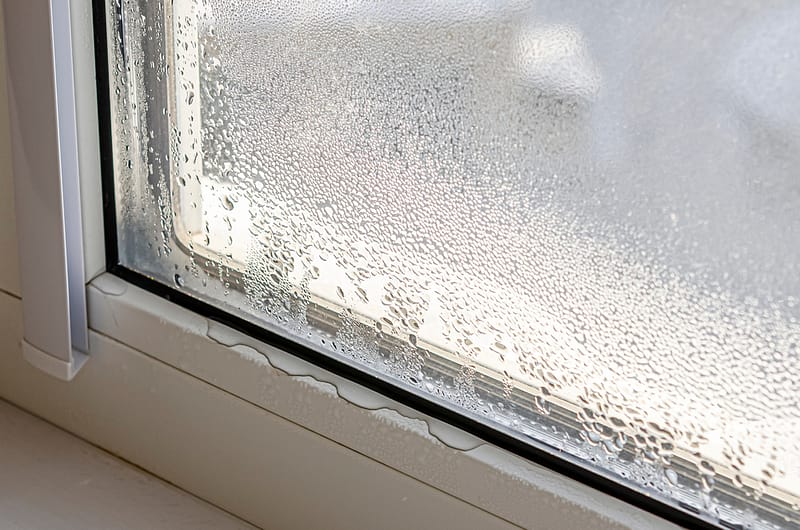The Impact of Humidity on Your Air Conditioning System
Humidity is a significant factor that affects the performance and efficiency of your air conditioning system, especially in a humid state like Florida. At Brown Heating, Cooling, and Plumbing, a trusted air conditioning company in Venice, Florida, we understand how crucial it is to manage humidity levels to ensure optimal comfort and functionality of your HVAC system. Here’s an in-depth look at how humidity impacts your air conditioning system and what you can do to mitigate these effects.
How Humidity Affects Your Air Conditioning System
- Reduced Cooling Efficiency
- High humidity levels make the air feel warmer than it actually is. This phenomenon, known as the heat index, causes your air conditioning system to work harder to achieve the desired temperature. The increased workload reduces the overall cooling efficiency of your unit, leading to higher energy consumption and increased utility bills.
- Increased Wear and Tear
- When your air conditioner has to run longer and more frequently due to high humidity, it puts additional strain on the system. This continuous operation can accelerate wear and tear on components such as the compressor and fans, potentially leading to more frequent repairs and a shorter lifespan for your unit.
- Poor Indoor Air Quality
- Excess humidity can create a breeding ground for mold, mildew, and dust mites, all of which can negatively affect indoor air quality. These contaminants can circulate through your HVAC system, exacerbating allergies and respiratory issues for occupants. A high humidity environment also makes it difficult for perspiration to evaporate, adding to the discomfort.
- Comfort Issues
- Even if your air conditioner is effectively lowering the temperature, high humidity can still make the indoor environment uncomfortable. Humid air can feel sticky and oppressive, reducing overall comfort levels. It can also affect sleep quality and lead to increased fatigue.
- Condensation and Water Damage
- High humidity levels can cause condensation to form on your air conditioning unit and ductwork. Over time, this moisture can lead to rust, corrosion, and water damage, potentially causing structural issues and costly repairs. Excessive condensation can also damage your home’s walls, ceilings, and furniture.
Managing Humidity Levels
- Use a Dehumidifier
- One of the most effective ways to manage humidity levels in your home is to use a dehumidifier. A whole-house dehumidifier integrated with your HVAC system can help maintain optimal humidity levels, reducing the strain on your air conditioner and improving indoor comfort.
- Proper Ventilation
- Ensure that your home is properly ventilated to allow excess moisture to escape. Use exhaust fans in bathrooms and kitchens, and consider installing attic fans to reduce humidity levels in these areas. Good ventilation helps remove humid air and replace it with drier air.
- Maintain Your HVAC System
- Regular maintenance of your air conditioning system is crucial for managing humidity levels. Schedule annual inspections with Brown Heating, Cooling, and Plumbing to ensure that your system is running efficiently and to address any potential issues before they become major problems. Clean coils and filters ensure that your system can handle humid air effectively.
- Seal and Insulate Ductwork
- Leaky or poorly insulated ductwork can allow humid air to enter your home, reducing the efficiency of your air conditioning system. Make sure your ductwork is properly sealed and insulated to prevent moisture infiltration. This also helps in maintaining consistent temperatures throughout your home.
- Install a Programmable Thermostat
- A programmable thermostat can help you manage humidity levels by allowing you to set specific temperature and humidity settings for different times of the day. This can optimize the performance of your air conditioning system and maintain a comfortable indoor environment.
- Use Ceiling Fans
- Ceiling fans can help circulate air and reduce humidity levels in your home. They can also make you feel cooler, allowing you to set your thermostat a few degrees higher and reduce the workload on your air conditioning system. This can lead to energy savings and improved comfort.
Conclusion
Humidity can have a significant impact on the performance and efficiency of your air conditioning system. By understanding these effects and taking steps to manage humidity levels, you can ensure that your HVAC system operates optimally, providing a comfortable and healthy indoor environment. At Brown Heating, Cooling, and Plumbing, we are dedicated to helping you maintain the perfect balance of temperature and humidity in your home. For professional advice and high-quality HVAC services, contact Brown Heating, Cooling, and Plumbing, your trusted air conditioning company in Venice, Florida. Visit https://brownheatingandcoolinginc.com/ to learn more about our services and how we can help you achieve optimal indoor comfort.
Invest in managing humidity today to extend the life of your air conditioning system and enhance the comfort of your home.


